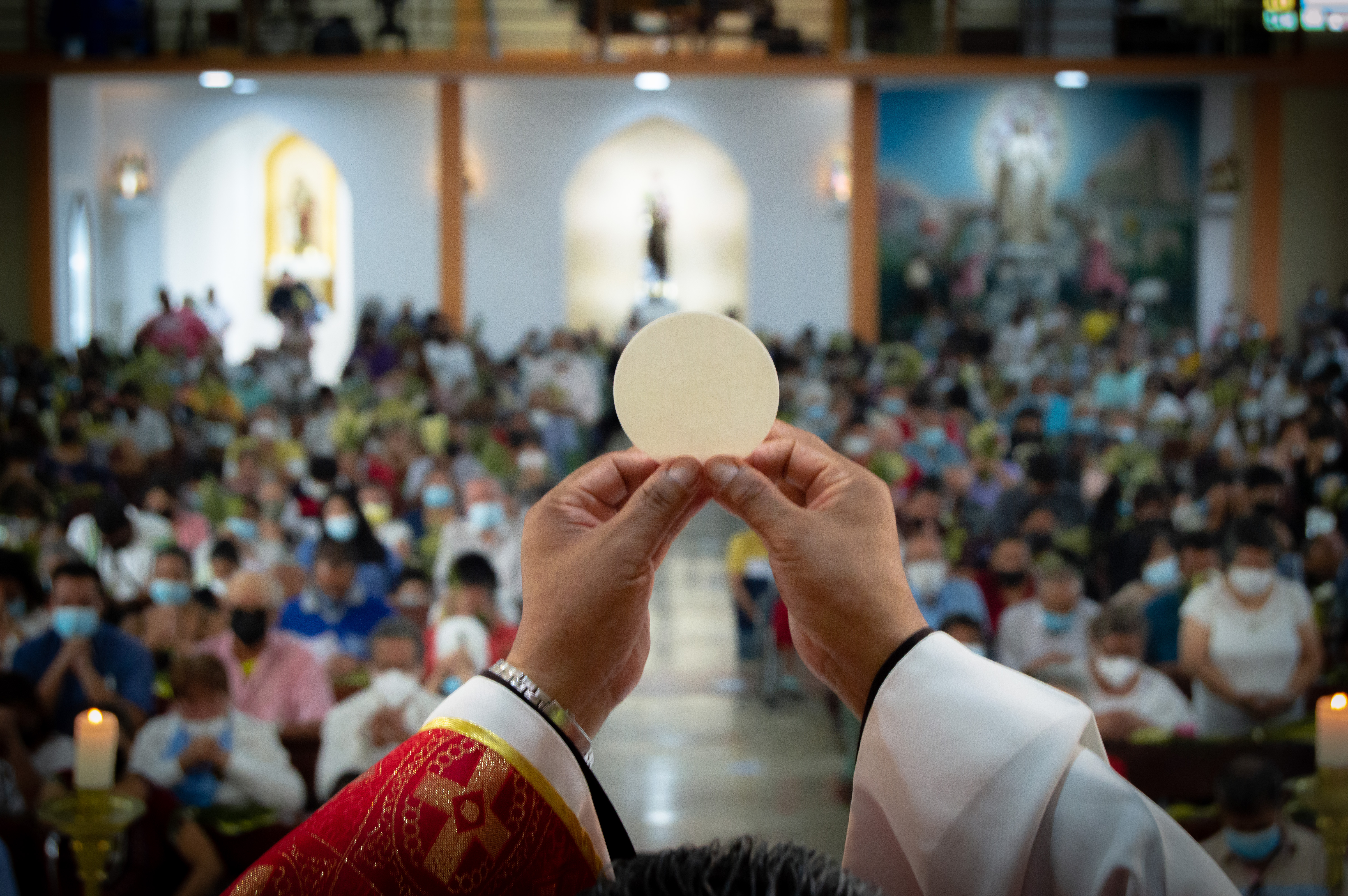God’s vision to St. Peter centers on the command to eat animals that Jewish law did not permit them to eat. Peter understandably recoils when God tells him to slaughter the animals and eat them, because he is a practicing Jew, faithful to the covenant handed on to him. God continues with His command, telling Peter that “what God has made clean, you are not to call profane” (Acts 11:9). This convinces Peter to follow the men who come to him and preach to the Gentiles, bringing them into the New Covenant in Christ.
This was a shock to the Jews who confronted Peter, but they ultimately understood the vision and rejoiced. A people that was once considered unclean and cast out of the covenant was now allowed to enter into a relationship with God and receive the Holy Spirit, just as the Jews had been receiving the Spirit. Although it would have been understandable to view the Gentiles as outside of the covenant, God makes it clear that He wants to let them in.
This can be a good lesson for us in other areas of our spiritual lives, placed as we are in a Church with so many different expressions of faith and worship. To mention just one example, Roman Catholicism has two different expressions of the liturgy in the Novus Ordo (Mass following the Second Vatican Council, often in English) and the Traditional Latin Mass. Both of these are practiced throughout the world, and both communicate the means of grace necessary for Catholics to fulfill their Sunday obligation and receive our Lord in Holy Communion.
But in the face of these and many other differences, the proper response is often to remember God’s words to Peter. If we know that something or someone is from the Lord, then we should respect that and not hinder it. These situations will come in different ways, depending on our own personalities and preferences. Some people may find certain styles of preaching frustrating, while others may find them helpful. Some may find the leadership style of a particular pastor effective, while others may find it ineffective.
Not that these are things that “God has made clean” in the sense of sacred, but we can still use the words as an opportunity to appreciate legitimate diversity in the life of the Church. We aren’t asked to tolerate sin or wickedness. Aside from this, however, differences of opinion, style, and preference should not be stumbling blocks for us in the Christian life.
La visión de Dios a San Pedro se centra en el mandato de comer animales que la ley judía no les permitía comer. Es comprensible que Pedro retroceda cuando Dios le dice que mate a los animales y se los coma, porque es un judío practicante, fiel a la alianza que le ha sido transmitido. Dios continúa con su mandato, diciéndole a Pedro que “No tengas tú por impuro lo que Dios ha hecho puro” (Hechos 11,9). Esto convence a Pedro de seguir a los hombres que vienen a él y predican a los gentiles, llevándolos a la Nueva Alianza en Cristo.
Esto fue un shock para los judíos que confrontaron a Pedro, pero finalmente entendieron la visión y se regocijaron. A un pueblo que alguna vez fue considerado inmundo y expulsado de la alianza ahora se le permitió entrar en una relación con Dios y recibir el Espíritu Santo, tal como los judíos habían estado recibiendo el Espíritu. Aunque hubiera sido comprensible considerar a los gentiles como fuera de la alianza, Dios deja claro que quiere dejarlos entrar.
Esta puede ser una buena lección para nosotros en otras áreas de la vida espiritual, como miembros de una Iglesia con tantas expresiones diferentes de fe y adoración. Para mencionar sólo un ejemplo, el catolicismo romano tiene dos expresiones diferentes de la liturgia en el Novus Ordo (la Misa después del Concilio Vaticano Segundo, rezado casi siempre en el idioma del país) y la Misa tradicional en latín. Ambas se practican por todo el mundo y ambas comunican los medios de gracia necesarios para que los católicos cumplan con su obligación dominical y reciban a nuestro Señor en la Sagrada Comunión.
Pero ante estas y muchas otras diferencias, la respuesta adecuada podría ser recordar las palabras de Dios a Pedro. Si sabemos que algo o alguien es del Señor, entonces debemos respetarlo y no obstaculizarlo. Estas situaciones se presentarán de diferentes maneras, dependiendo de nuestras propias personalidades y preferencias. Algunas personas pueden encontrar frustrantes ciertos estilos de predicación, mientras que otras pueden encontrarlos útiles. Algunos pueden encontrar efectivo el estilo de liderazgo de un párroco en particular, mientras que otros puedan encontrarlo ineficaz.
No es que estas sean cosas que “Dios ha limpiado” en el sentido de lo sagrado, pero aún podemos usar las palabras como una oportunidad para apreciar la diversidad legítima en la vida de la Iglesia. No se nos pide que toleremos el pecado o la maldad. Aparte de esto, sin embargo, las diferencias de opinión, estilo y preferencia no deberían ser obstáculos para nosotros en la vida cristiana.
 David Dashiell is a freelance author and editor in Nashville, Tennessee. He has a master’s degree in theology from Franciscan University, and is the editor of the anthology Ever Ancient, Ever New: Why Younger Generations Are Embracing Traditional Catholicism.
David Dashiell is a freelance author and editor in Nashville, Tennessee. He has a master’s degree in theology from Franciscan University, and is the editor of the anthology Ever Ancient, Ever New: Why Younger Generations Are Embracing Traditional Catholicism.
Feature Image Credit: Gabriel Manjarres, cathopic.com/photo/15523-momento-de-la-elevacion
